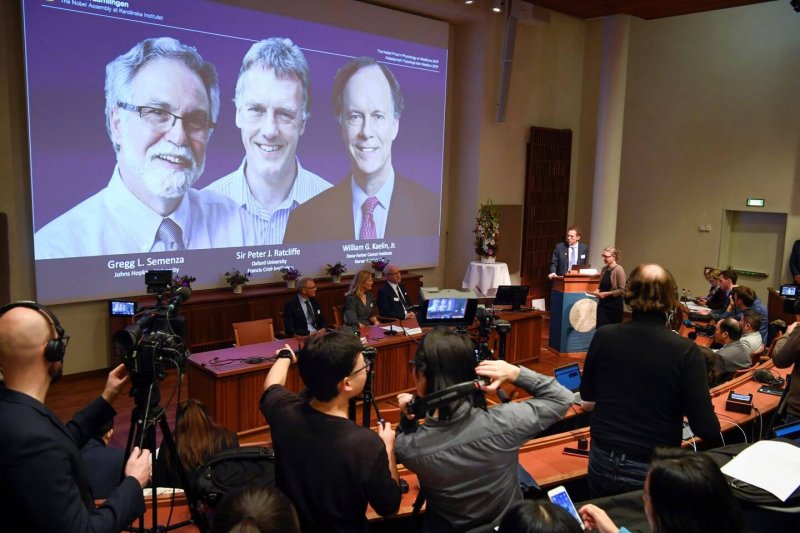The Nobel Prize in physiology or medicine was awarded Monday to three physician-scientists from the U.S. and Britain — William G. Kaelin Jr, Peter J. Ratcliffe and Gregg L. Semenza — “for their discoveries of how cells sense and adapt to oxygen availability.”
The fundamental discoveries by the trio illuminated what the Nobel committee called “one of life’s most essential adaptive processes,” answering profound questions about how the body works and opening new ways to understand and potentially treat cancer and other diseases.
At its most basic, their work revealed the cascade of molecular events that allows the human body to adapt to thinner air at high altitude by sending signals to generate more red blood cells to carry oxygen. But it has also led to a line of research into how this basic mechanism goes awry in disease.
…
Randall Johnson, a member of the Nobel committee, compared the molecular machinery the scientists discovered to a switch that ensures that the body always has the right level of oxygen.
Read full, original post: Nobel Prize in medicine awarded for discovery of how cells sense oxygen































